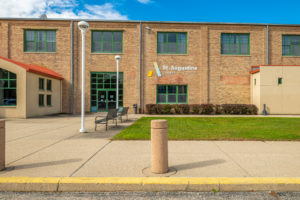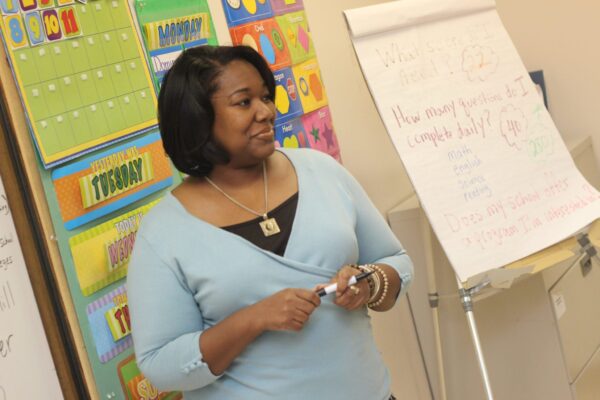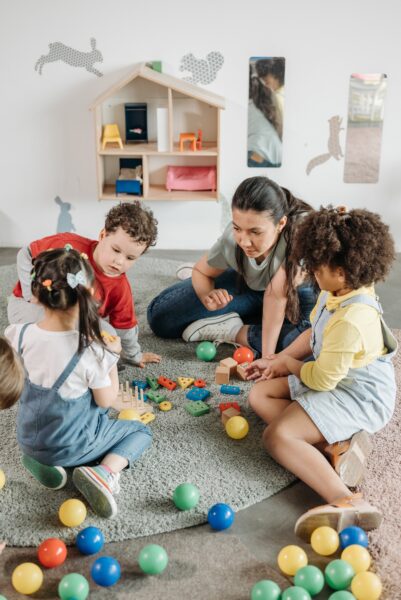
Early Childhood Education
Program Length
4-5 Years
60 Credit Hours
Degrees Offered
Bachelor of Arts
Learning Experiences
Hybrid
Bachelor of Arts Early Childhood Education
Our new Bachelor of Arts (BA) in Early Childhood Education (ECE) degree program provides advanced training in early childhood education and student teaching opportunities on a path to working as a teacher in a public or private school, all within a bilingual degree program that works for adult learners regardless of their schedule. This starts with a great education, with multilingual ECE classes and a flexible schedule designed to work for students that work full time, that is built by strong values to build your career on. An ECE degree is a professional qualification that brings you closer to long-term goals and success.
Is this Chicago-based Early Childhood Education Program up to National CAEP Standards?
Developed in alignment with National Association of the Education of Young Children (NAEYC) standards for program learning outcomes, this multilingual bachelor-level early childhood education degree curriculum facilitates all TASC standards as required by CAEP. Our early childhood education courses provide proper and accredited education with resources to help you succeed. Building on the success of our long-standing Associate of Applied Sciences (A.A.S.) in Early Childhood Education degree program — which has earned the prestigious Level Four rating in the Gateways to Opportunity Illinois Professional Development System, the highest level an A.A.S. program can achieve — this rigorous 120-credit-hour program includes a variety of disciplines in ECE and other departments with a variety of bilingual college-level courses to choose from.
BA Early Childhood Education Program Outcomes
Graduates of this program will:
- Demonstrate in-depth knowledge of the fundamental principles to teach young children from birth to age 8.
- Understand that all learning for young children must be in safe, respectful, supportive, and challenging environments.
- Adhere to the highest standards addressing content in language arts, reading, children’s literature, mathematics, science, social science, art, music, and drama as well as the application of content through classroom connections to theory, practice, and clinical experiences.
- Understand the roles, goals, benefits, and uses of assessment in classroom instruction.
- Plan instruction that is both rigorous and engaging for children with a curriculum that develops students’ critical thinking.
- Model learning experiences for students that gradually release responsibility to them through guided practice.
- Have the credentials to teach English as a Second Language or bilingual programs in public and/or private institutions and the knowledge to differentiate instruction for English learners, those with diverse learning styles, and students with special needs.
ECE Bachelor’s Degree Curriculum
As a student on the Bachelor’s degree in Early Childhood Education track, you will complete 48 credit hours within the ECE program and the rest in other departments, with courses in English, Fine Arts, Humanities, Behavioral and Social Sciences, Natural Sciences, and Mathematics. You will also participate in a full-day student teaching program in an early childhood classroom setting (infant, toddler, preschool, kindergarten, or primary) for 16 weeks under the supervision of a licensed ECE teacher and a college supervisor. Our high-quality early childhood education degree is an excellent option for adult learners because you have the opportunity to earn hands-on classroom experience. By working with real students in a classroom setting you can implement the skills you learned in early childhood education courses and see how you can help young children learn and develop fundamental life skills. Graduates of our BA in Early Childhood Education degree program will have completed the 100 hours of coursework (within six concentrations) required by the State of Illinois for certification in Early Childhood Education.
You will also qualify for an Illinois Professional Educator License (PEL), a key credential for a career in teaching after receiving your degree in childhood education. A Bachelor’s degree in Early Childhood Education will also qualify you for other professional educators’ licenses across the country. While each state does have its own testing requirements, it is very possible to move from one state to another with enough additional time to fulfill the new state’s requirements for their Professional Educator License. Please consult the teaching license reciprocity guidelines to learn more. Embedded in this innovative degree program is an 18-credit-hour minor that includes the potential to add one of two additional Illinois Board of Education Endorsements: 1) English as a Second Language and/or 2) Bilingual Education. If you are fluent and literate in a language other than English, this minor qualifies you for both the ESL and the Bilingual Education Endorsements (after all requirements are met). Candidates who are not fluent or literate in another language can qualify for the ESL Endorsement.










